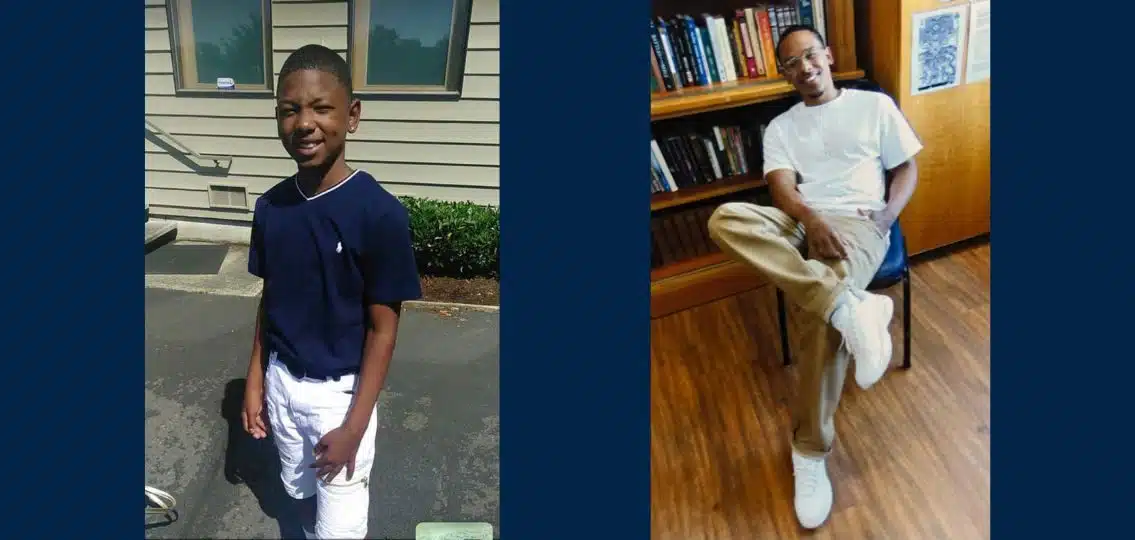My 5-year-old son insisted he was better at basketballI and that I was too old to keep up with him. I told him he was too small to guard me and recalled the time when I rocketed him into the air so he could slam dunk his ball into the basketball hoop.
Joking back and forth like this, it almost seemed as if we were having a normal conversation.
But then, he asked, “Hey dad, when are you coming home?”
And I knew what he meant was, Hey dad, when are you coming home from jail?
I didn’t know how to answer.
The truth was, I made a mistake that could keep me locked up for years. But how could I tell my young son that without crushing his spirit? The answer was that I couldn’t.
So, instead I said, “Lord willing, soon,” and when the automated voice told us we had 60 seconds left, I rattled off a quick prayer.
Soon after that call, I was convicted as an accomplice to first degree murder and on three counts of attempted murder in the second degree. At age 21, I was sentenced to 63 years in prison. 300 miles away from my son, I became an incarcerated parent.
It wasn’t easy, but I found ways to parent my young son from prison.
Physical distance strained our relationship significantly. I saw my son only twice over the next decade. All that time, I yearned to be emotionally present for him, but I never had a father-figure of my own growing up to show me how. I felt ill-equipped to parent, let alone to parent my son from prison. Still, I was determined not to let physical barriers or my lack of a role model keep me from loving my son with everything I had, even as a dad in prison.
I relied a lot on making sure to keep the lines of communication open and I made sure to speak to my son on the phone as much as possible so I could remain involved in his life. Some of our conversations were short, “Hey dad, I love you. I was about to go play,“ and they made my heart sink knowing I couldn’t play with him and would likely never experience such moments again.
I couldn’t support him financially from prison because my janitorial job paid just $27 a month. On many occasions, I was tempted to sell drugs, which some prisoners do to support their families, because prison phone calls were not free and school supplies, clothes, shoes, birthday, and Christmas gifts were nearly impossible to provide.
Instead, I relied on family and friends to take care of the child I was responsible for — which was demoralizing but necessary — and I made whatever sacrifices I could to save money so I could afford to call my son and buy him an occasional gift.
Often, I went to bed hungry. Meal portions in prison are often small and many of us supplement calories by buying food from the prison store. But I saved up my food money so I could purchase a gift for my son on his birthday and then hear the excitement in his voice because I had done something special for him.
When my teenage son was traumatized, I feared he could turn out just like me.
When my son was a teenager, he began failing classes, skipping school, hanging with the wrong people, and disrespecting his mother. I worried about him, but I thought there wasn’t much I could do about any of that from behind bars.
Then, nearly 14 years into my sentence, my son experienced trauma similar to my own. A close friend was shot multiple times in front of him and nearly lost his life. This news paralyzed me with fear.
The idea of my child reliving my experiences was unbearable. I didn’t want my son to end up incarcerated like me. I was determined to help him forge a better life.
In our first conversation after the shooting, I sat at a prison phone and asked how he felt about what he experienced. I told him it was okay to feel sad, hurt, and upset, and that these emotions didn’t make him less of a man.
“Dad, I wanna get even,” he told me with pain and anger in his voice.
The time had finally arrived for me to be open and honest with my son about the circumstances that led me to prison. It wasn’t easy to be vulnerable with my child, but I did it anyway, to save him from future pain.
Parenting from prison meant sharing my vulnerability and hard truths.
I told my son about my insecurities growing up, and how I struggled to handle negative emotions because of my abusive upbringing. I told him how I embraced a toxic perspective on what it meant to be a man, and how responding to violence with violence had cost me everything I loved, including my opportunity to raise him.
I acknowledged that I failed him.
And then, I told him I wanted to do better.
I explained that my father never showed me how to handle pressures in life, and that I wanted to do for him what no one had done for me. I told my son I never wanted him to experience imprisonment. I told him I was doing everything I could to minimize the cycle of trauma in our family. I told him I was doing everything I could to love him, even if parenting behind bars is difficult.
Thankfully, my son listened to me and took my advice. I’m so proud of him. He is doing far better in life than I ever did at his age.
Because of him, I continue to follow through with my declarations and promises. He is my inspiration for becoming a better person and dad.




